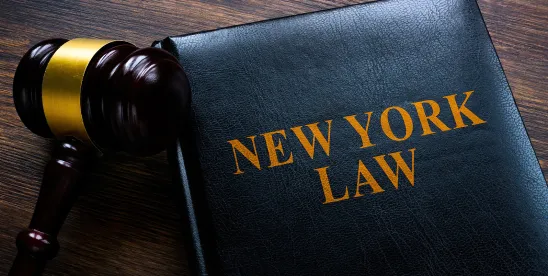The New York State Legislature has amended New York Labor Law (“the Law”) to reduce statutory damages for first-time violations of pay frequency requirements for manual workers while preserving the ability to impose liquidated damages on repeat offenders. The amendment, which took effect on May 9, 2025, is intended to provide relief from what many characterized as disproportionate penalties for technical, non-willful violations. Notably, the amendment applies to both pending and future actions.
Section 191(1)(a) of the Law mandates that employers pay “manual workers” on a weekly basis, unless they obtain authorization from the New York State Department of Labor to pay on a semi-monthly schedule. Prior to the recent amendment, even a single pay frequency violation could expose employers to substantial liability. The statute had been interpreted to allow plaintiffs to recover liquidated damages equal to 100% of the late-paid wages, in addition to statutory interest and attorneys’ fees.
The scope of employer liability under Section 191 changed dramatically in 2019 when the Appellate Division, First Department issued its decision in Vega v. CM & Associates Construction Management, LLC [1] that a private right of action exists under Labor Law § 191(1)(a). The Vega decision spurred a flurry of class action litigation, exposing employers to potentially large liability for inadvertent, first-time infractions. While the Appellate Division, Second Department reached a contrary conclusion — finding no private right of action under Section 191 — the New York Court of Appeals has not yet resolved the split, leaving substantial legal uncertainty.
Seemingly in response to the growing litigation risk and uncertainty, the legislature amended Section 198 of the Law to cap damages for first-time violators. Under the new provision, first-time offenders may be liable for “No more than one hundred percent of the lost interest found to be due for the delayed payment of wages calculated using a daily interest rate for each day payment is late, based on the annual rate of interest then in effect, as prescribed by the superintendent of financial services pursuant to Section 14-a of the Banking Law.” By contrast, employers found to have a prior violation of the same provision remain subject to liquidated damages of up to 100% of the late-paid wages.
The statutory revision seeks to strike a balance between deterring willful noncompliance and avoiding excessive liability for technical, first-time pay frequency violations. While the amendment aims to curtail opportunistic litigation, it also reinforces the enforcement mechanisms for repeat or bad-faith violators.
New York employers should carefully review their pay frequency practices, especially with respect to workers who may fall under the “manual worker” classification.
Footnotes
[1] 175 A.D.3d 1144 (1st Dep’t 2019)




 />i
/>i

